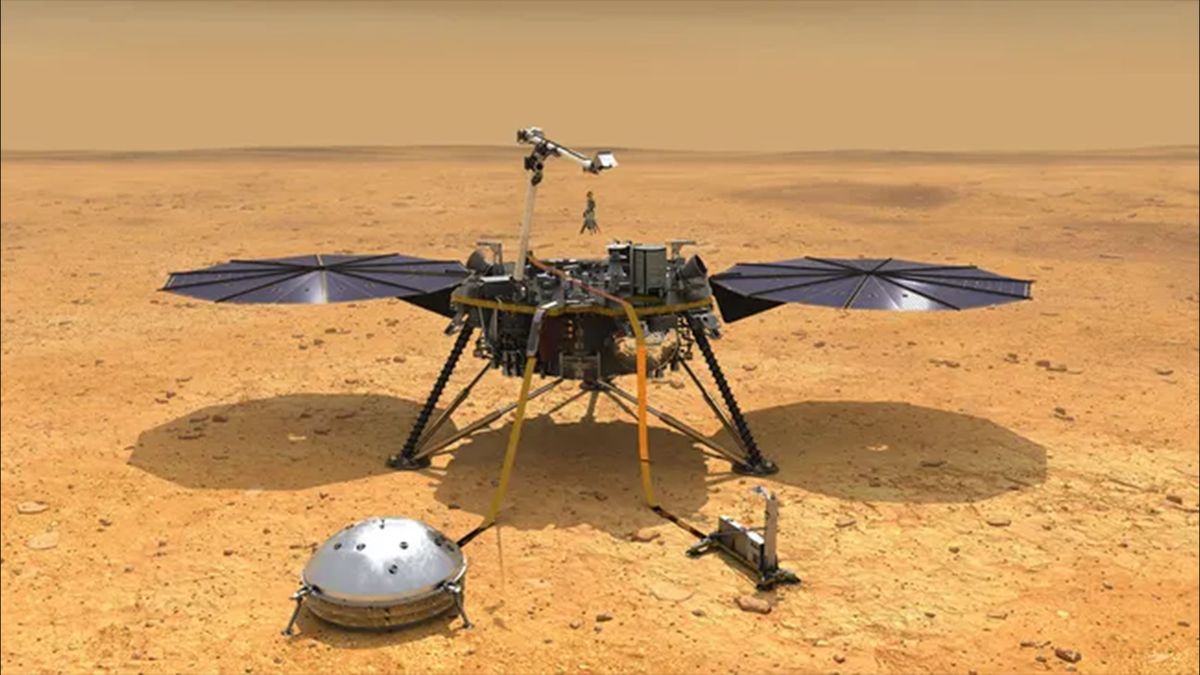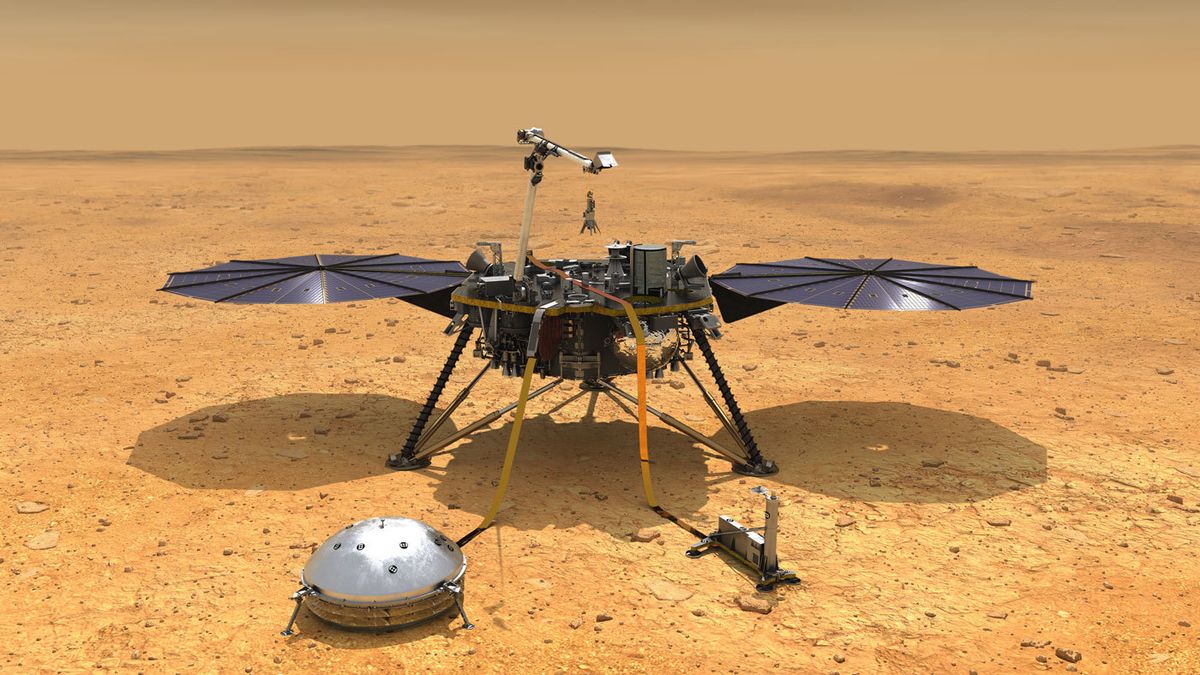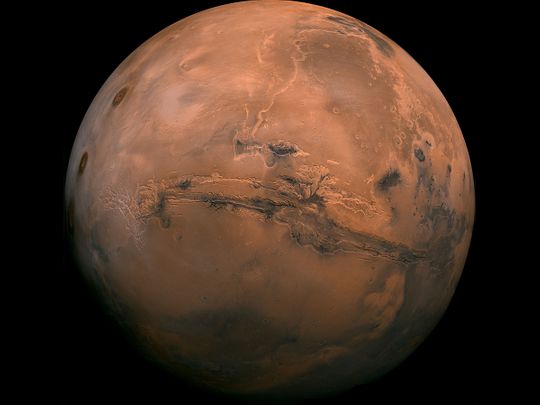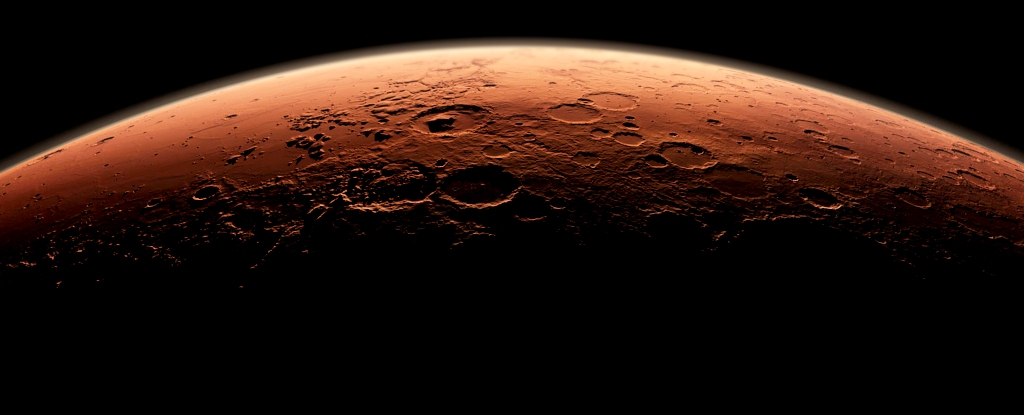Scientists have revealed the source of the strongest recorded Marsquake, a seismic event that shook the Red Planet for six hours in May 2022. The Marsquake, recorded with a magnitude of 4.7, was five times stronger than the previous record-holder, leading researchers to embark on an investigation.
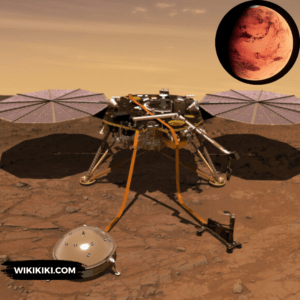
Also Read: OSIRIS-REx Mission: NASA Unveils First Sample from Bennu Asteroid
At first, scientists believed that this seismic event might have been triggered by a meteorite impact, a common cause of Marsquakes.
Mars, frequently named the “Red Planet,” has long fascinated scientists and space enthusiasts alike. Despite being smaller and colder than Earth, Mars exhibits unique geological characteristics that have captured the attention of researchers.
The presence of Marsquakes, seismic events akin to Earth’s earthquakes, has been one of the key areas of exploration. Historically, most Marsquakes detected on the Red Planet were attributed to the impact of meteorites.
These sudden impacts, while not uncommon on Mars, generate seismic waves that can be detected by instruments like NASA‘s InSight lander.
However, the seismic event in question, dubbed “Marsquake S1222a,” stood out as it lacked a corresponding impact crater, prompting scientists to investigate its origin further.
The scientific community initiated a thorough search for a fresh impact crater, which would typically accompany a significant meteorite strike.
This effort involved a collaborative endeavor, with space agencies from around the world joining forces to analyze data from satellites orbiting Mars. However, despite their extensive search, no evidence of a new crater was found.
Also Read: Spotify is Launching a Personalized in-app Merchandise Hub
This surprising result marked a turning point in the investigation, leading scientists to explore alternative explanations for the Marsquake’s origin.
They hypothesized that this seismic event might not be related to a meteorite impact but rather could be attributed to internal tectonic forces within Mars itself.
Unlike Earth, Mars lacks the well-known geological phenomenon of plate tectonics, where large sections of the Earth’s crust move and interact.
On our planet, these movements are responsible for earthquakes, volcanoes, and the creation of mountain ranges.
Initially, Mars was thought to be too small and too cold to host similar tectonic processes. The idea of active plate tectonics on Mars had largely been ruled out.
The disclosure that the Marsquake was possibly tectonic in origin has significant implications for our understanding of the Red Planet’s geological activity.
Researchers now believe that Mars experiences seismic events due to the release of billion-year-old stress within its crust.
Over the course of Mars’ geological history, various parts of the planet cooled and shrank at different rates, creating tension and stress within the planet’s crust.
Also Read: China’s Baidu Revealed New Ernie AI Version to Rival GPT-4
This stress, which has built up over millennia, eventually finds release in the form of Marsquakes. The Marsquake S1222a event has shed new light on the seismic activity of Mars and its interior dynamics.
Scientists are still striving to fully comprehend why some regions of the planet appear to have higher stress levels than others. This knowledge is essential as we contemplate future human missions to Mars.
For example, this newly discovered understanding of Mar’s seismic activity will be crucial for identifying safe zones for human habitation on the planet and regions that should be approached with caution.
The safety of future Mars explorers depends on our ability to predict and mitigate potential risks associated with Marsquakes and other geological phenomena.
In essence, the Marsquake S1222a event is a significant leap forward in our quest to unlock the mysteries of the Red Planet.
It challenges preconceived notions about the planet’s geological activity and reveals the complexity of its geological history.
As we move forward with planned missions to Mars, including potential human colonization, a deeper understanding of Mars’ geology is essential.
Also Read: Pepper X Sets New Guinness World Record as the Hottest Pepper

/cloudfront-us-east-2.images.arcpublishing.com/reuters/7GGM22XLFZP75L424VS6SJ2Y3E.jpg)
